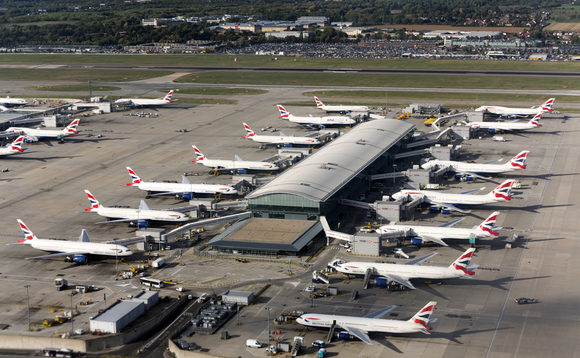Dubbed ‘Airports of Tomorrow’, the campaign aims to develop a series of blueprints for how airports can provide the infrastructure that will be required to deliver on the aviation industry’s goal of achieving net zero emissions by 2050. As such, it will explore the challenges and opportunities presented by the transition towards sustainable aviation fuels (SAF) and electric and hydrogen-fuelled aircraft.
It also promises to map out how to deliver the 300 SAF plants estimated to be needed by 2030 to deliver on interim climate goals, while also billions of dollars of investment in new technologies through a sustainable finance toolkit.
The group estimated it will require annual investments in the region of $175bn to enable the transition to emerging technologies and alternative propulsion methods that could result in net zero emissions by 2050.
Lauren Uppink, head of climate strategy at WEF, said airports offer “strategically located epicentres of activity” where industry leaders can work together to transform the industry.
More than 50 aviation sector CEOs are already on-board with the new initiative, including bosses from Airbus, Arup, Atkins, Boeing, and Mott MacDonald, as well as Dallas Fort Worth, Aeroporti di Roma, and London Heathrow.
“If the right planning and investment decisions are made today, airports can play a pivotal role in shaping a sustainable future for aviation as well as other transport sectors,” said Uppink. “The Airports of Tomorrow initiative will help airports harness these opportunities, enabling them to fulfil their potential as clean energy hubs and standard-bearers for the net-zero economy.”
According to the World Economic Forum, it is estimated that airports could consume five times more electricity than they do today to power alternative propulsion methods – with global electricity demand for airports set to reach up to 1,700 TWh by 2050, equivalent to the energy generated by a solar farm half the size of Belgium.
However, it adds that the industry’s collective land footprint is ripe for new low carbon infrastructure such as solar arrays, blending facilities for liquid fuels, and storage for either liquid or gas hydrogen.
Giampiero Massolo, chairman of Aeroporti di Roma operator Mundys, said that working with leading aviation stakeholders is key to mobilising the “huge” levels of investment and innovation needed to transform airports into clean energy hubs.
“We see the transformation of airports towards net-zero aviation as a building block of our strategy focusing on sustainable infrastructure and multi-modal, integrated mobility services to improve life for people on the move,” he said.
Graham Bolton, global practice leader for aviation at Mott MacDonald, said he hoped the new scheme would build upon the engineering firm’s existing work to integrate aviation, energy, and climate expertise in support of airports decarbonisation efforts.
“Any pathway to achieving net-zero aviation will require a fundamental transformation in energy provision – with implications across both airport infrastructure and wider energy networks,” he said. “By considering the airport as part of a wider ecosystem we can develop new solutions that facilitate decarbonisation of aviation and deliver wider community benefits.”
The announcement lands just days after the Paris Air Show, where the UK government earmarked a total of £218m in new funding for projects promising to enable greener air travel, and aviation firm ZeroAvia finalised a deal to supply Monte Aircraft Leasing with up to 100 of its zero-emission engines.
Have you missed our latest Aerospace News? Take a look at as there are Positive Signs for the Aerospace Sector.

